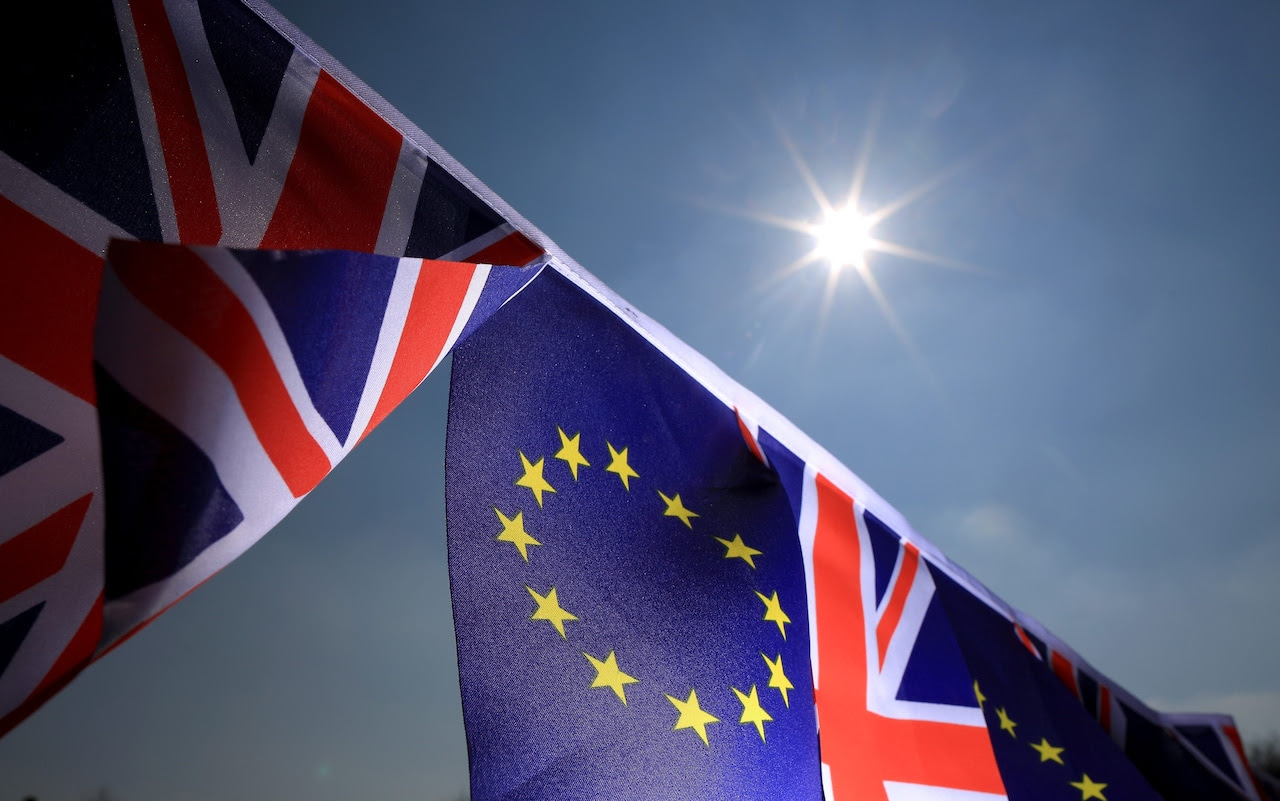 |
|
During Brexit negotiations, it was clear that the UK was not willing to pay the painful economic price Credit: Christopher Furlong/Getty Images |
|
August 22
 |
NHS 111 patients left on hold 20 times too long |
| With hospitals and ambulance services under strain, the public is urged to use the NHS 111 service instead of going to A&E. Yet new figures show that patients are being left on hold on the telephone helpline for 20 times too long. The medical advice service aims to answer calls in 20 seconds or less on average, according to an NHS benchmark, but the latest official data shows the average “time to call answer” was 395 seconds – six and a half minutes. Patients have also reported being left on hold for up to an hour, while others have waited overnight for a call back from a doctor. The Telegraph disclosed on Saturday that the NHS had told hospitals to prepare a public awareness campaign for people to “minimise” pressures on urgent and emergency services. Some hospitals have already been telling patients not to come to A&E unless they are facing a “serious emergency”, but experts warned the delays in answering 111 calls could put patients at risk and urgent services under even more pressure.
It comes after Liz Truss, the frontrunner in the race to become the next prime minister, pledged to halt the exodus of doctors from the NHS by reforming pension rules. And, amid the pressures on the NHS, Dame Esther Rantzen today demands that both Tory leadership candidates do more to boost social care and should commit to appointing a minister for older people to end the “victimisation” of the over-65s. Read her article for us. With two weeks until the next PM is appointed, here is a reminder of where Ms Truss and her rival, Rishi Sunak, stand on the key issues. |
Top GCSE exam grades tipped for record fallGCSE pupils are being warned to prepare for disappointment, with a record fall in top grades expected this week. According to analysis, 75,000 fewer pupils than last year are likely to get the equivalent of As or A*s. Some schools have arranged additional pastoral support, including mental health first-aiders and careers advisers. The exams watchdog was asked to rein in the number of top grades awarded after they reached an all-time high last year, when results were based on teacher assessments. As education editor Louise Clarence-Smith reports, the number of results marked grade 7 or above (the equivalent of A or A*) is set to fall by 230,000 compared with last year, according to analysis – affecting results for an estimated 75,000 pupils who would have received top grades last year. Our Q&A explains how grades can be challenged. |
London monk who helped J-Lo to tie the knotIt is, perhaps, the greatest Hollywood love story of the 21st century. Jennifer Lopez finally married Ben Affleck at the weekend, 20 years after they were first engaged – and, according to reports, they had a former grammar school boy from north London to thank for making their fairy-tale romance finally come true. Jay Shetty, who grew up in a terraced house in Wood Green, reportedly officiated the ceremony. Robert Mendick has the story of how Mr Shetty, a Hindu monk turned life coach, will go down in history as the man who made “Bennifer” happen. |
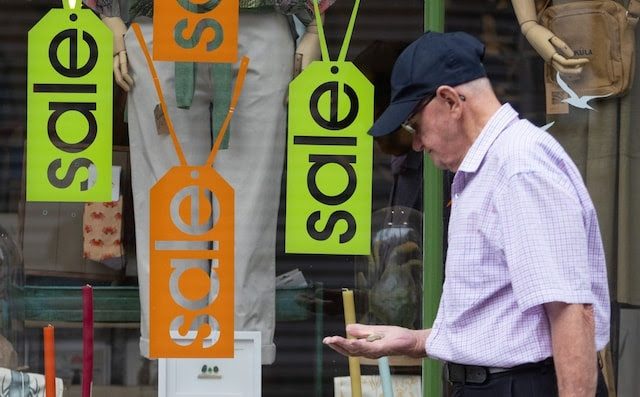 |
|
The big story: UK inflation to ‘almost double to 18.6pc’ |
| It is a prediction that makes you draw breath. Inflation will almost double to 18.6pc in the coming months as energy prices continue to soar, according to experts. Gas prices jumped by a quarter last week, which the bank Citigroup said would push up the cost of living at rates not seen since the 1970s. This will force the Bank of England to raise interest rates to around 7pc, it predicted, if inflation drives widespread demand for higher wages. Meanwhile, experts said today that households will suffer a stunning 80pc increase in the average energy bills from October. Ofgem is due to announce the next price cap on Friday, which Cornwall Insights predict will reach £3,554 before rising further to a peak of more than £5,300 in the second quarter of 2023. The price cap increased to £1,971 on April 1. Here is a guide to what the rising prices mean for you.
To put the increases in context, the price rises will add the equivalent strain on household budgets as an extra 9p on the basic rate of income tax, a supplier warned today. Greg Jackson, founder and chief executive of Octopus Energy, also said that if the price of beer had risen in line with gas, a pint would cost £25. Telegraph readers have shared how inflation has affected their shopping habits, and revealed their chosen cost-saving methods. Many small businesses are already barely profitable and an outrageous power bill could be the final straw but Matthew Lynn reveals why we cannot afford corporate welfare for energy bills. |
‘Fiscal ruin’What to do about these frightening predictions will be at the top of the in-tray for the next Prime Minister, whose identity will be revealed two weeks from today. Yet allies of Rishi Sunak have warned that Liz Truss’s “magic money tree” approach could cause “fiscal ruin”. Ms Truss, the clear favourite in the contest, would prioritise immediate tax cuts as part of an emergency Budget on taking office. Supporters of Mr Sunak have rounded on her plans, and the former chancellor himself has strongly hinted he would turn down a Cabinet job under his rival due to their differences over how to run the economy. Mr Sunak said “you can’t have your cake and eat it” during a disarming interview with Vanessa Feltz on Radio 2, sketched here by Tim Stanley, but Andrew Lilico suggests we should end the scaremongering over Ms Truss’s emergency budget. |
Confronting pensionersIf not tax cuts, then what is the solution to the harsh financial winter ahead? Lucy Burton suggests the Tories must accept it is time to confront wealthy pensioners. The solution is yet to be found in Europe, where benchmark gas prices have surged to new records at around 15 times the typical summertime level amid fears of a Russian supply shutdown. The German people know tough times lie ahead but they want action, not mere platitudes, from their chancellor, as Katja Hoyer reveals how a cacophony of crises have brought Olaf Scholz to the brink. |
||||
World news: Russian tourists leak defence secretsA new militant group of anti-war Russians were allegedly behind the audacious car bomb attack that killed the daughter of one of Vladimir Putin’s closest allies, a former member of the Russian parliament has claimed. Daria Dugina was travelling in her father’s Toyota Land Cruiser in Moscow on Saturday night when a suspected explosive device was detonated in what was perceived as the first attack in the Russian capital since the invasion of Ukraine. Russia’s FSB intelligence agency has accused Ukrainian special forces of being behind the car explosion but a former Russian MP has made different claims. Meanwhile, Russian holidaymakers in Crimea are unwittingly giving away the position of Russia’s missiles as they post holiday photos on social media posing next to missile systems, according to the Ukrainian ministry of defence.
|
Also in the news: Today’s other headlines |
| Meta | Facebook’s parent company risks a “grotesque betrayal” of children by introducing encrypted messaging without safeguards against child abuse, Priti Patel says today. Writing in The Telegraph, the Home Secretary urges Meta, which owns Facebook, Instagram and Whatsapp, to rethink its plans to roll out end-to-end encryption next year. As home affairs editor Charles Hymas reports, Ms Patel fears the move will prevent police from investigating child abuse. |
August 23
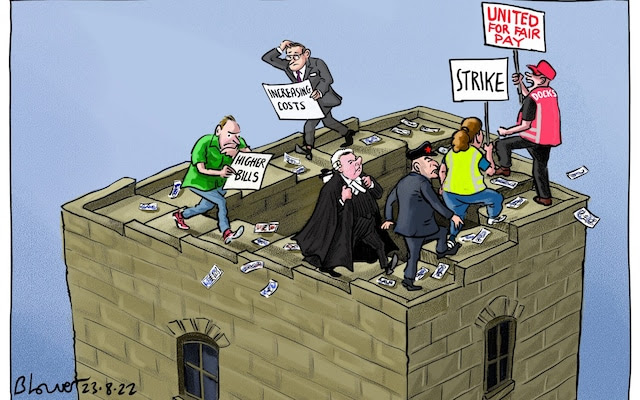 |
|
Also in the news: Today’s other headlines |
| Education | GCSEs and A-levels should be scrapped because they leave children “poorly prepared for work”, Sir Tony Blair says today. Writing in The Telegraph, the former prime minister argues that the qualifications “do far too little” to meet the needs of the modern world of work and that employers are “increasingly disgruntled by what they are seeing”. He is backing a plan to replace the current examination system in England. |
 |
 |
|
|
 |
|
Young men fight at the Jaguar Boxing Club of Odesa. Credit: Oliver Marsden |
|
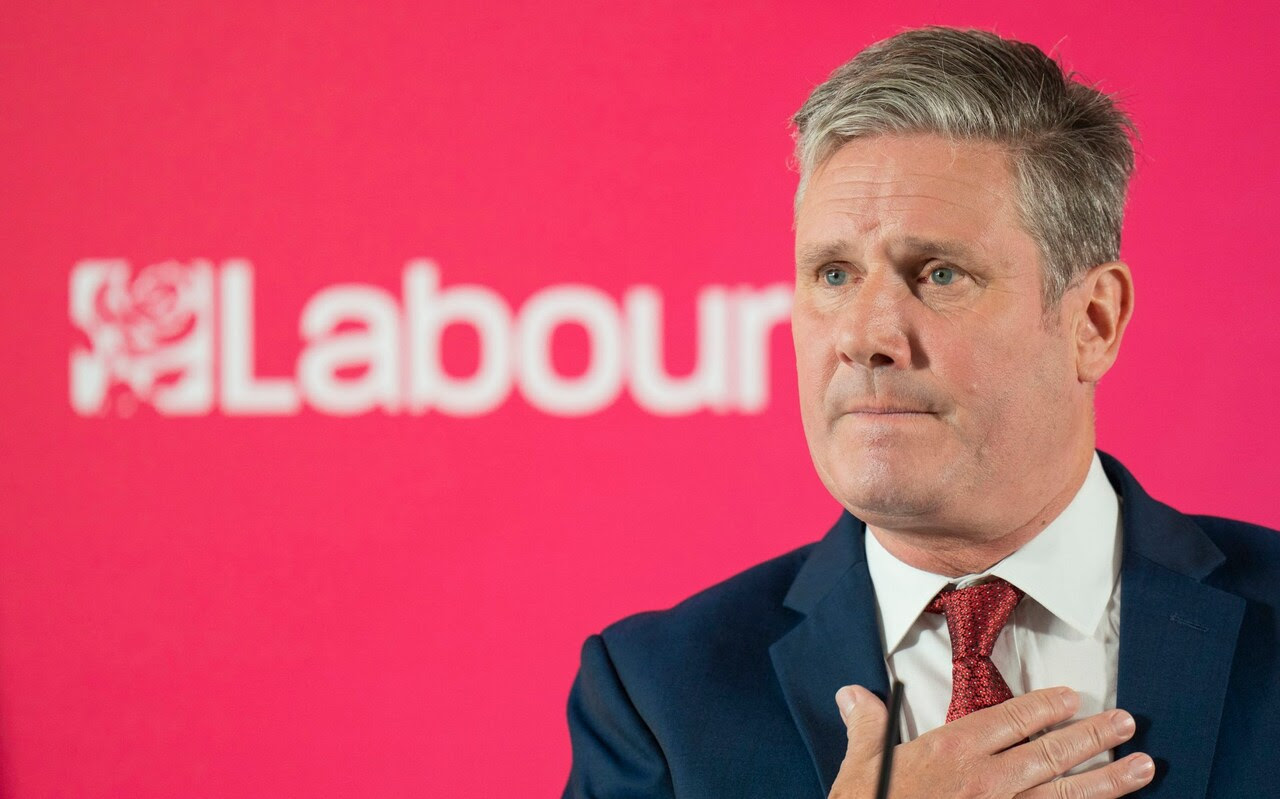 |
|
As the prospect of a government led by Sir Keir Starmer becomes more likely, it seems we might be returning to the old debates of 2016. Credit: Danny Lawson/PA wire |
|
For Germany, there are only superficial differences between the Thatcher-channelling Tory candidates |
||
|
||
| Germans are following every turn of the race to succeed Boris Johnson with a diligent enthusiasm more usually reserved for reality TV shows in Britain.
Rishi Sunak and Liz Truss have nabbed coverage in the pages of German newspapers even with the competition of a scorching summer, the war in Ukraine, and an acute energy crisis. In Germany, the contest is billed as a showdown between the wily husband of a billionaire and the “Thatcher-actress” who “needs to work on her performances”. Ms Truss’s about-face on Brexit – from Liberal Democrat and Remain campaigner, to hardliner likely to continue Mr Johnson’s combative approach to dealing with Britain’s erstwhile EU partners – has drawn attention. The Foreign Secretary’s role in pushing through a bill to tear up the Northern Ireland Protocol, seen by Germans as the main cause of disagreement between Britain and the EU, has also not been forgotten. Equally, Mr Sunak’s love for Margaret Thatcher has caught the eye of German commentators, as have his frequent attempts to undermine Ms Truss’s Brexiteer credentials. But while the former chancellor is seen as a Thatcherite, he is also gently mocked as more Savile Row than pussy bow. Could one detect a hint of schadenfreude in the German press poring over the candidates’ clash over the price of their suits or earrings? Perhaps, but for Germany the differences between the two candidates are superficial. Gabi Biesinger, a veteran foreign correspondent at German broadcaster ARD, wrote that Tory members face a choice between two candidates who “claim the spirit of the conservative iron super-lady Margaret Thatcher for themselves”. Whoever ends up winning “doesn’t seem to matter” as they both want to continue Mr Johnson’s Brexit policies. The only difference is they will do it “with better manners and less-tangled hair”. |
||
|
Owami Davies found ‘safe and well’ after eight weeks |
|
Owami Davies Credit: PA |
| Student nurse Owami Davies has been found “safe and well” in Hampshire almost eight weeks after she went missing, the Metropolitan Police has said. |
 |
|
August 24
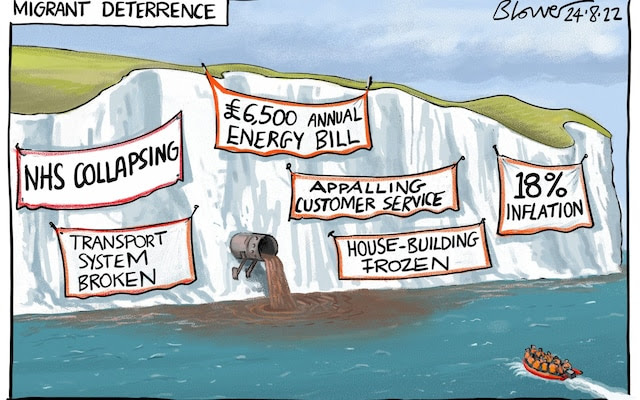 |
|
Also in the news: Today’s other headlines |
| Spiralling energy costs | Industry chiefs are preparing for the energy crisis to last for another three years as National Grid draws up emergency plans to reduce power demand from factories across Britain. Large industrial companies would be paid to cut gas usage every winter until 2025 as National Grid attempts to avoid uncontrolled blackouts that would cause “a major economic and societal impact”. It came as forecasts suggested a new high for the energy price cap in April. And Tom Rees explores how the energy crisis is already laying waste to the high street. |
Around the world: Finnish PM sorry over topless snapFinland’s prime minister has apologised after an image emerged of topless influencers taken during a private party at her taxpayer-funded residence. In a since-deleted TikTok post, two social media personalities kissed each other and covered their bare breasts with a “Finland” sign at Sanna Marin’s home. Ms Marin, whose private life has recently been in the limelight, confirmed the picture had been taken at her residence. |
 |
|
The now deleted picture that was taken at Sanna Marin’s home and posted on TikTok |
 |
 |
|
|
Chopper’s Westminster (recess) Whisper |
| Matt Hancock distances himself from his own avatar
Lots of excited chatter today that ex-health secretary Matt Hancock has become the first MP to “join the metaverse” by developing an avatar of himself. The images of the muscle-bound Hancock might have cheered up Westminster in late August, but his team are playing down his role is involvement in creating the new image which apparently is not meant to be based on him at all. His spokesman tells me: “People have every right to have a go at making an avatar of Matt, but he won’t be joining the metaverse any time soon. He looks forward to being part of the conversation though.” Hancock, who famously has his own app and is keen on cryptocurrency, is passionate about the virtual world. Here he is chatting about why the metaverse matters. It might be the future but it left me feeling dizzy. |
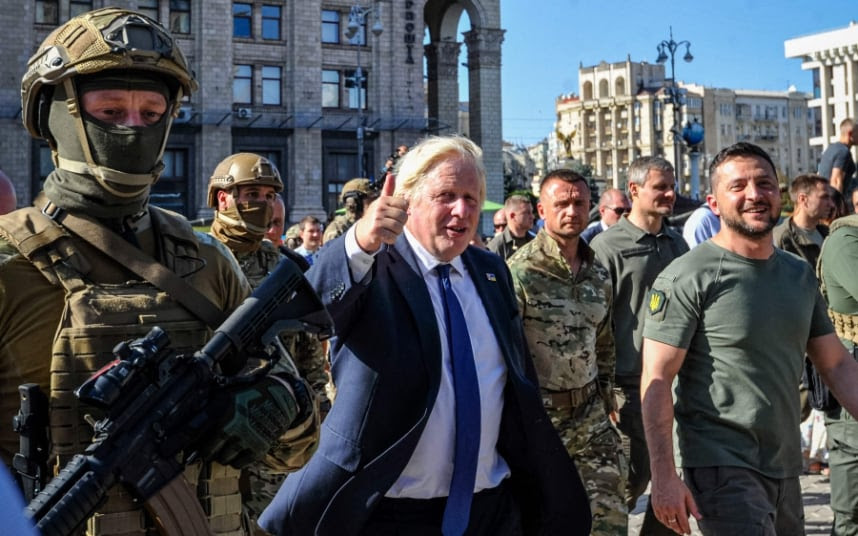 |
|
Today’s essential headlinesLiverpool shooting | The man who was chased and shot by the killer of Olivia Pratt-Korbel is a former drug dealer who was jailed for 45 months in 2018 for a string of burglary offences, the Telegraph can reveal. Joseph Nee, 35, suffered gunshot wounds in Monday night’s shooting, after bursting into Olivia’s home to escape a balaclava clad attacker. He was arrested this morning in hospital where he was being treated for his injuries for breaching the terms of his licence and will be returned to prison once he recovers. Read more on his past offences. |
|
The big story: PM says Britons must accept higher bills |
| The prospect of sky-high energy bills this winter has caused anguish in countless households across the UK. Yet Boris Johnson has called on Britons to bear higher gas bills as Ukrainians are “paying in blood” on a surprise Kyiv visit. The Prime Minister announced £54 million in further support to the war torn country’s military as he met Ukraine’s president Volodymyr Zelensky as the country marked its 31st year of independence from Soviet rule today. US President Joe Biden has also announced a record $3bn arms package for Kyiv. Mr Johnson called for a reduction on energy reliance that can be manipulated by countries like Vladimir Putin’s Russia. It emerged today that North Sea gas production has surged by more than a quarter in just six months as the UK raced to wean itself off Russian energy imports. Domestic gas production in the first half of 2022 was 26pc higher, enough to heat almost 3.5m homes for a year. As figures show Britain’s declining reliance on Moscow for energy, Mr Johnson said: “I believe Ukraine can and will win this war.”
Meanwhile, a car bomb has killed the pro-Russian mayor of an occupied village in southern Ukraine. No one has yet claimed responsibility for killing Ivan Sushko in the village of Mikhailovka, but it comes in the wake of an increased campaign by Ukrainian partisans who are targeting officials who collaborated with the invading Russian army. In the UK, the Defence Secretary has said visa rules for Russians can be “toughened up” but there should not be a blanket ban on them travelling to Britain. |
‘Death of optimism’Six months ago today Ukrainians were woken by a barrage of Russian missiles, Europe was plunged into war, and Volodymyr Zelensky said in an independence address that Ukraine itself was “reborn”. Since then Western capitals have suffered what Mark Galeotti, an expert in the Russian security state, calls a “death of optimism”. The long-held belief that political difficulties in dealing with Putin’s government were just a blip has been replaced by a begrudging acceptance that there will be a Cold War as long as he remains in power. Roland Oliphant recalls the start of the war and reveals how the Ukrainian attitudes have changed since then – and analyses what’s next. Vadym Prystaiko, the Ukrainian Ambassador to the UK and Piotr Wilczek, the Polish Ambassador to the UK, outline why Putin will never break their hunger for freedom. |
Propaganda warThat is despite the Kremlin’s unrelenting pro-war propaganda, a “disinformation and propaganda ecosystem” designed to spread Putin’s lie that people living in parts of Ukraine were eager for Russian rule. Yet a new survey has shown bored Russian TV viewers are switching off from the messaging. A forthcoming bulletin from the US State Department’s Global Engagement Center, seen by the Telegraph, details how the coordinated campaign has been used to back up the Kremlin’s military “special operation” over the last six months. Nick Allen reveals the six ways Russia launched an all-out propaganda war on Ukraine. |
Around the world: Marin’s tearful speech after parties
Finland’s prime minister today gave a forceful defence of her work record and her right to a private life after being swept up into a political scandal surrounding her partying antics. “I am human. And I too sometimes long for joy, light and fun amidst these dark clouds,” Sanna Marin said as she fought to hold back tears at her Social Democratic Party’s (SDP) event in Lahti city, north of Helsinki. The 36-year-old generated international furore after clips of her dancing at a private party and exclusive nightclub were leaked to the press last week. Opposition leaders have condemned her behaviour as unbecoming for a world leader. Yet read how hundreds of women across the world are posting footage of themselves partying in support Ms Marin.
August 25
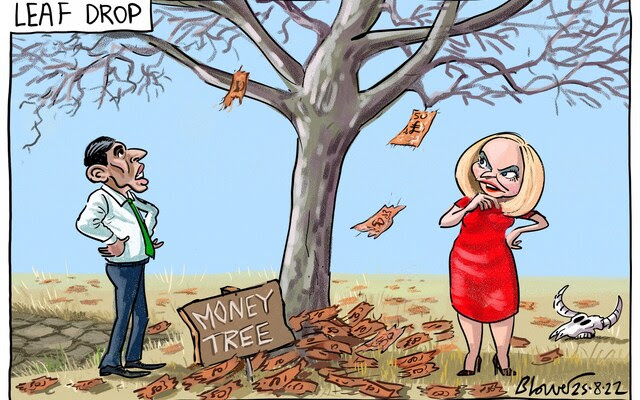 |
|
 |
 |
|
|
Chopper’s Westminster (recess) Whisper |
| Priti Patel quietly gets on with the job
While her colleagues have been busy whacking chunks out of each other to ingratiate themselves with Liz Truss or Rishi Sunak in the battle to be Tory leader, one Cabinet minister is quietly getting on with the job: Priti Patel. The Home Secretary is on the front page of today’s Daily Mail launching a ‘rapid removal’ scheme for Albanian migrants. Last weekend she was strengthening football banning orders. Trusted by Johnson, she has also been active behind the scenes in other policy areas, quietly getting on with the job. She can do this because she has not taken sides, meaning that civil servants trust her in the power vacuum that is gripping the top of Government. She deserves immense credit for this. Whether it is enough to keep her as Home Secretary when the new Government is formed on Sept 6 is a different matter altogether. |
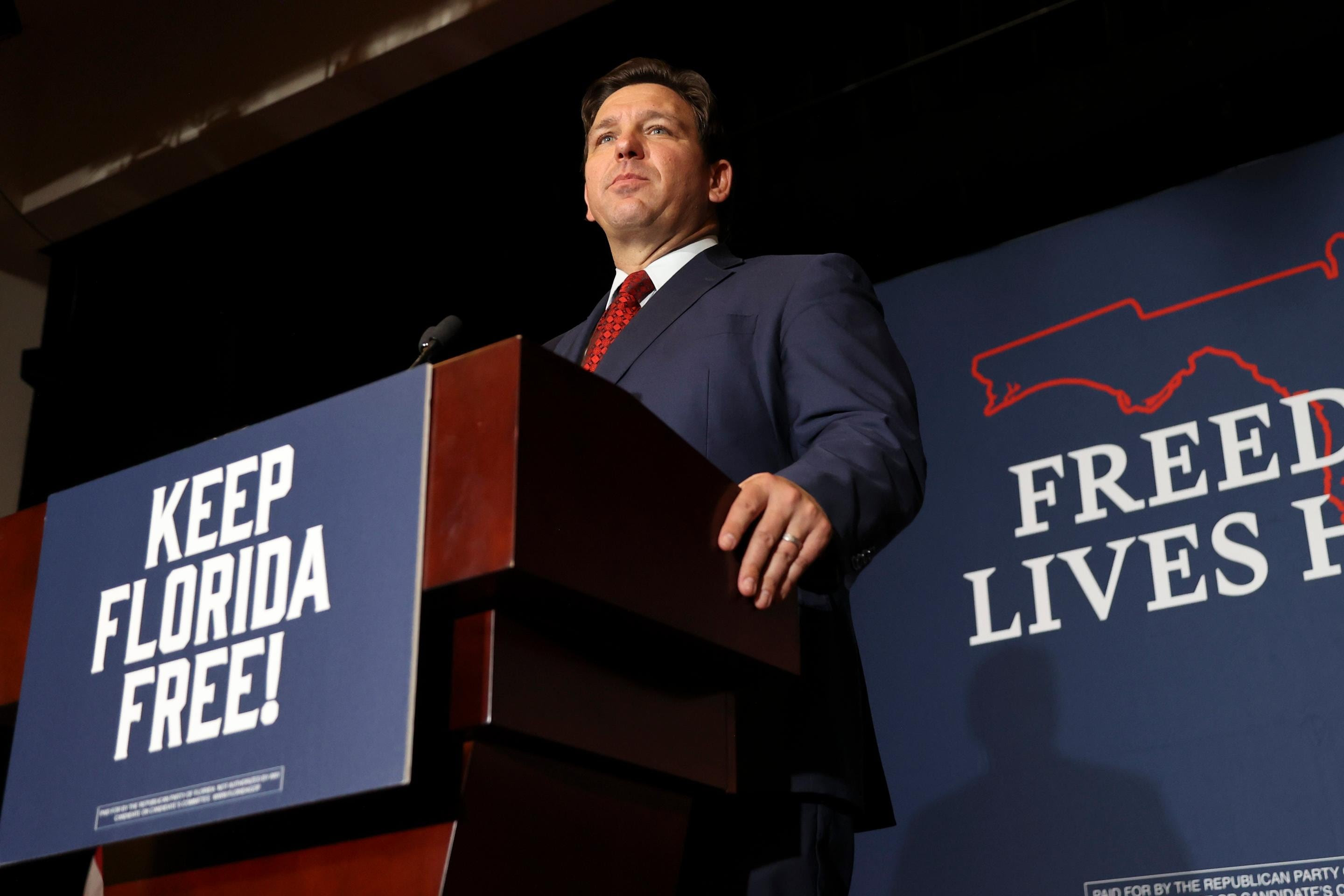 |
|
Florida Gov. Ron DeSantis speaks to a crowd of supporters during the Keep Florida Free Tour Credit: Luis Santana/Tampa Bay Times via AP |
|
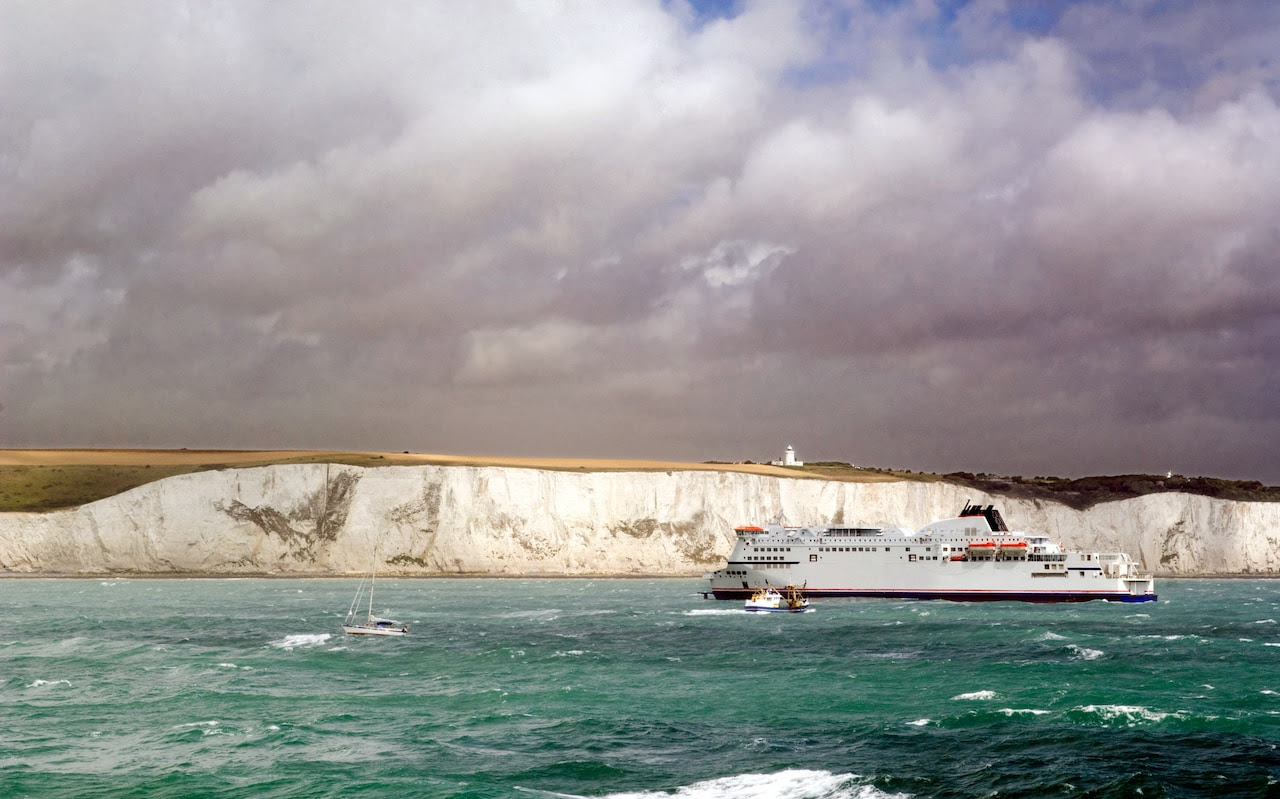 |
|
Britain has been accused of ‘dirtying’ the English Channel Credit: Alamy |
|
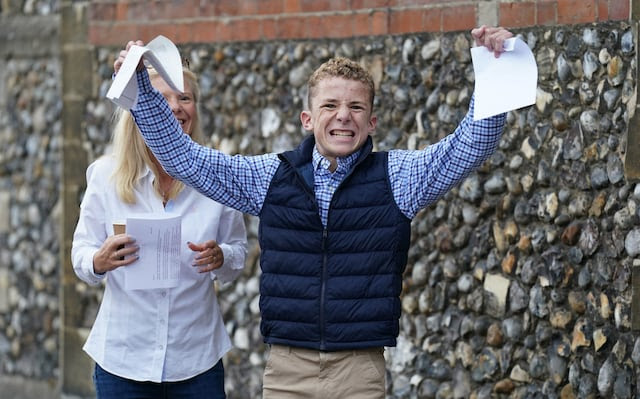 |
|
Putin orders increase in Russian troops
Vladimir Putin has ordered the Russian army to recruit an extra 137,000 soldiers to boost it to more than 1.15 million – roughly 15 times larger than the British Army. This is the first formal increase to Russia’s army since 2014. It comes as Russian units have lost an area of captured land larger than Denmark since Moscow’s deepest advance into Ukraine as they struggle to turn territorial gains into operation successes, according to military analysts. The Kremlin’s invasion has made little progress in recent months, after its troops were forced back from Kyiv in the early weeks of the war. Read how the situation has changed. Meanwhile, the Russian-occupied Zaporizhzhia nuclear plant has been disconnected from the national power supply, according to the the state energy operator, after fires broke out in the ash pits of a coal plant nearby.
August 26
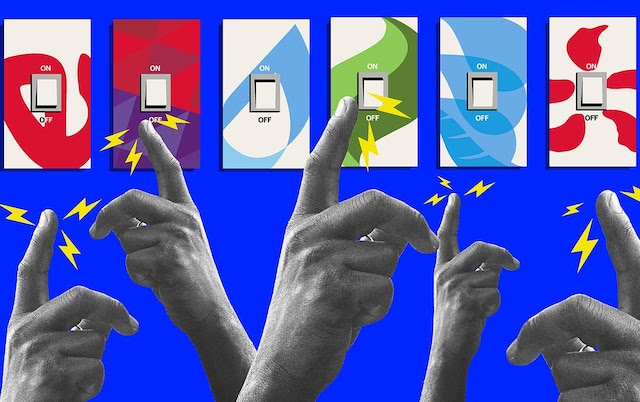 |
|
 |
 |
|
|
The average family will have to find the money to pay for an 80pc increase in their energy bills this winter – and forecasters say this will rise more in the spring. At least MPs will be shielded from it…
The big story: 6m households’ savings to be wiped out |
| The fact that everyone expected a huge rise in their bills does not make it easier. A bitter winter is coming as the cost of energy soars – on top of double-digit inflation. Ofgem confirmed today that the energy price cap will jump by an unprecedented 80pc to £3,549 per year in October. Yet that is only half the story, as the regulator has urged the Government to intervene immediately and warned the crisis for inflation-battered households “could get significantly worse through 2023”. Economists have warned that around six million British households will have their savings wiped out completely following the increase, while forecasters fear that energy bills will almost double again to more than £6,600 per year by the spring, as Vladimir Putin chokes off Europe’s gas supplies to send prices to record highs. Yet what will be the real impact on your bills? To help you budget your way through the cost of living crisis, use our energy bill calculator to see how your payments will change.
Faced with the terrifying update of the price cap, there is every chance the Conservatives will feel they have no choice but to prepare another Covid-style multibillion-pound bailout package. Yet Ben Wilkinson asks if pensioners really need any more help, given the state pension triple lock already protects them from rising energy bills. Andrew Lilico says the next prime minister should let the energy market do its job, while Kate Andrews warns that a Liz Truss premiership is starting to get quite expensive even without Government help on energy bills. |
What groceries would costLarger households will be disproportionately hit by the rise in the energy price cap because of a quirk in the way it is calculated, experts have warned. The classic 2.4 family could end up spending £2,362 more than £3,549 cap when it comes into effect in October, according to calculations by broker Interactive Investor. Here is how. Rising bills threaten to wipe out the financial wiggle room of households up and down the country and to illustrate the extraordinary explosion in global markets, look here at what would be eye-watering cost of groceries if they rose as much as the price cap. How are you going to manage this winter as inflation and higher energy bills bite? |
MPs are protectedThe money-saving expert Martin Lewis has said that Liz Truss and Rishi Sunak must announce a “robust, strong policy” to help families cope with soaring energy prices amid fears lives could be lost this winter. He said “this is a catastrophe, plain and simple,” and his reaction has been mirrored across the political spectrum. However, you will no doubt be relieved to learn that MPs will be shielded from the 80pc increase as there is no limit to what they can claim on expenses. Some politicians have been refunded amounts far higher than the current or forecasted energy price cap. Here are some of those who have made claims. In the face of crippling jumps in bills, mortgage rates and food costs, read how families can act now to minimise losses and protect their money. And read on for the complete guide to cutting your energy bill this year. |
Liverpool shooting | A 36-year-old man has been arrested on suspicion of the murder of nine-year-old Olivia Pratt-Korbel. The man, from the Huyton area of Liverpool, was also arrested on two counts of attempted murder after a raid involving armed officers on Thursday night.
Around the world: Socialite ‘jeweller’ was Russian spy
A femme fatale Russian spy living undercover in Naples as a Peruvian jewellery designer lured Nato commanders into honeytraps, a new investigation has revealed. Olga Kolobova, whose 30-year-old husband had died suddenly and mysteriously in Moscow, actually sold cheap Chinese rings and bracelets bought off the internet when she spied for the Kremlin. Ms Kolobova fled to Moscow in 2018 after a decade of spying in Europe under the alias “Maria Adela Kuhfeldt Rivera” after the Bellingcat investigations agency started revealing the network of spies run by Russia’s GRU foreign intelligence service. Read how she led a deliberately “chaotic personal lifestyle”, befriending high-profile people.
August 27
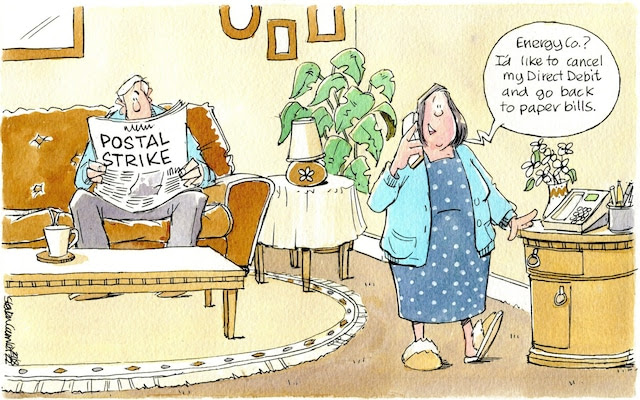 |
|
August 28
|



.jpg)

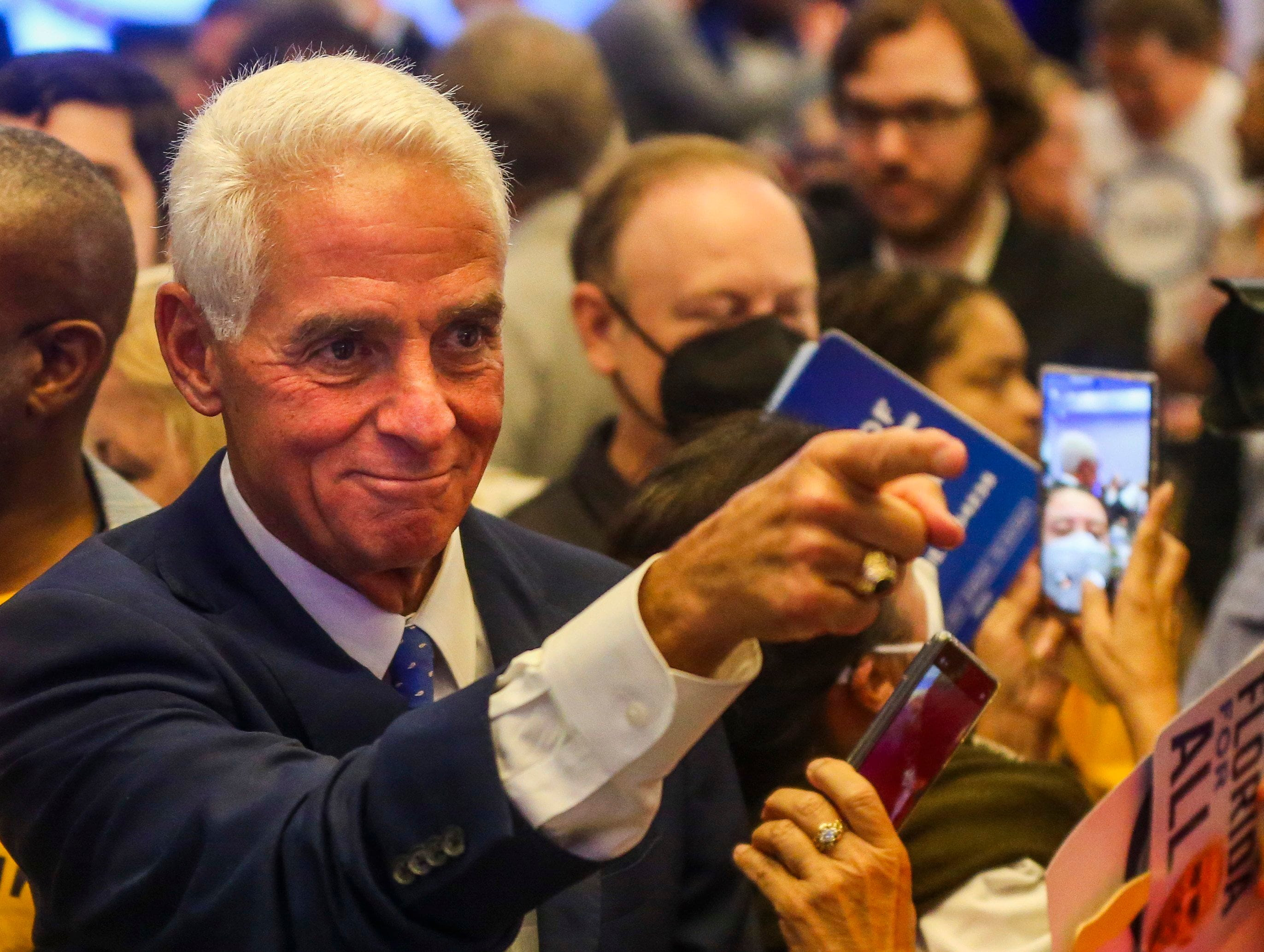
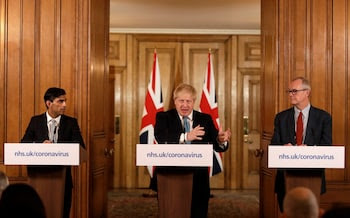 Rishi Sunak is just the start, writes Fraser Nelson.
Rishi Sunak is just the start, writes Fraser Nelson.  ‘The young can’t force their ideology on me’: how
‘The young can’t force their ideology on me’: how 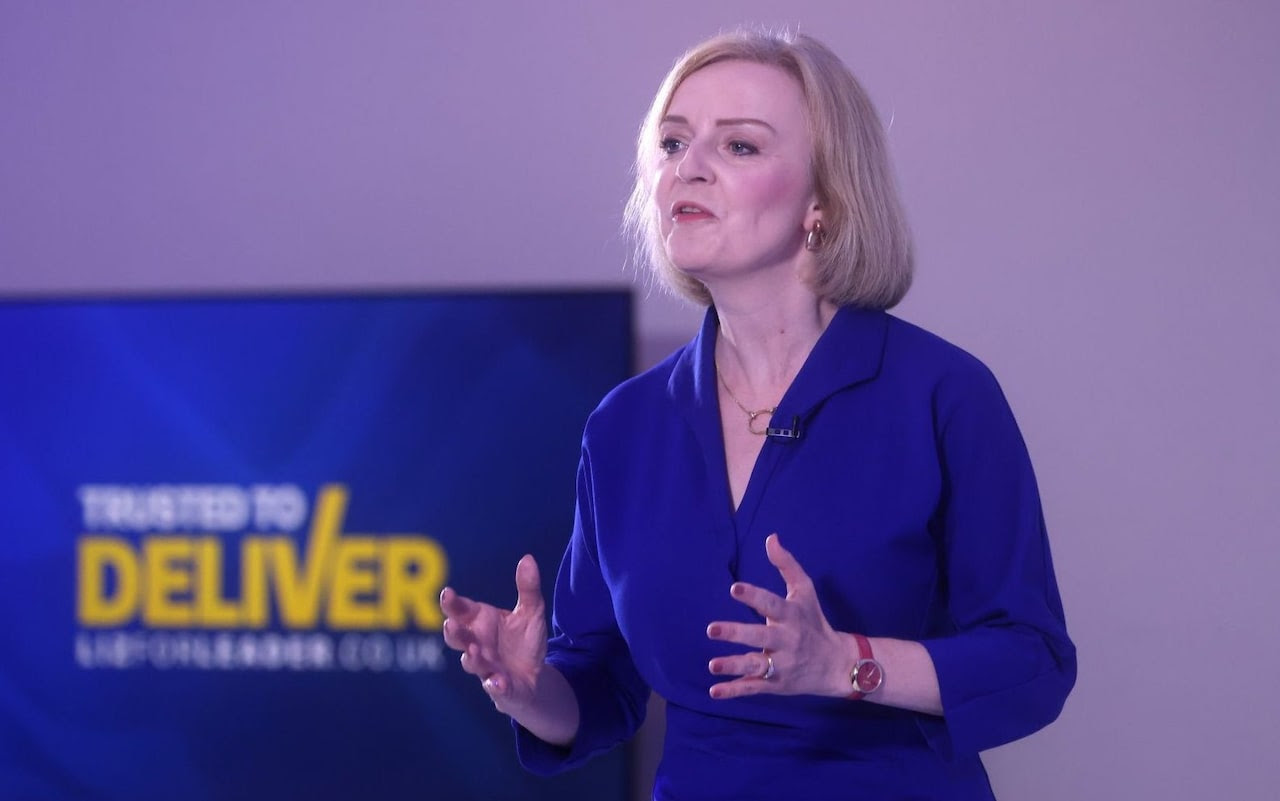

One thought on “The Telegraph looking at the 4th week of August 2022”